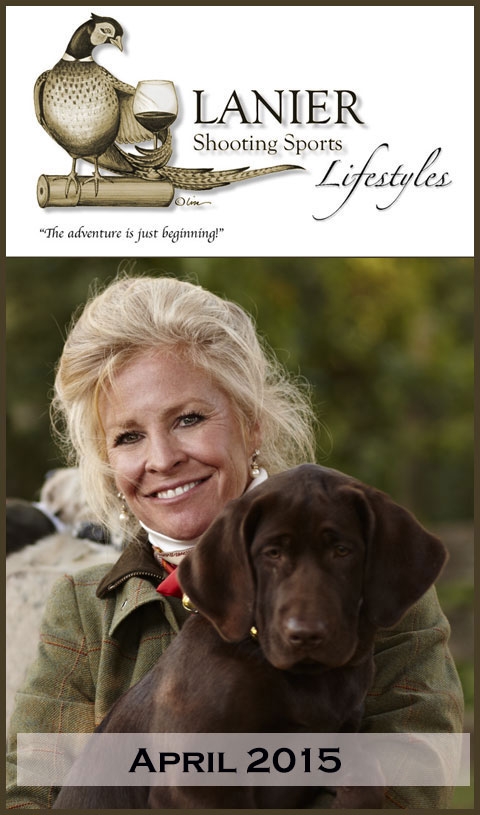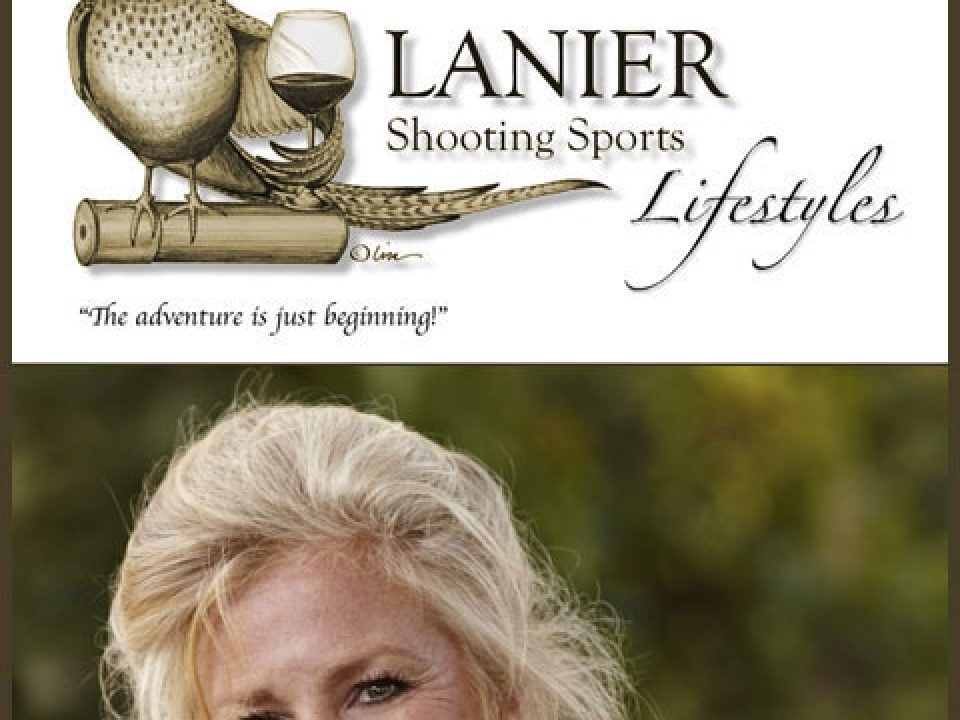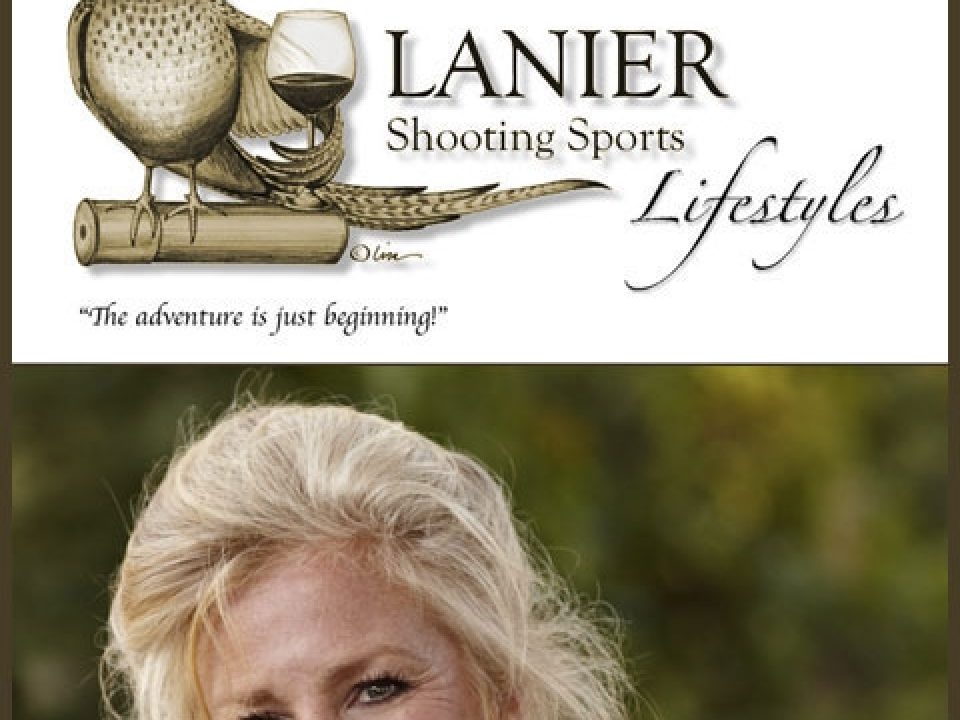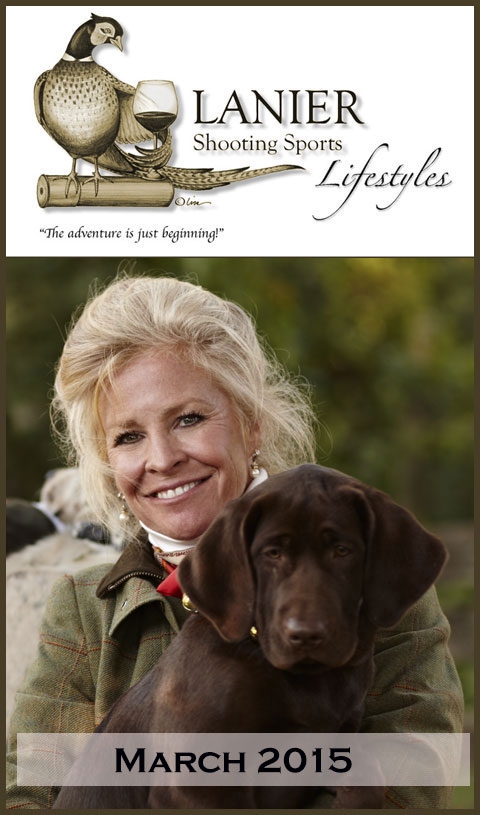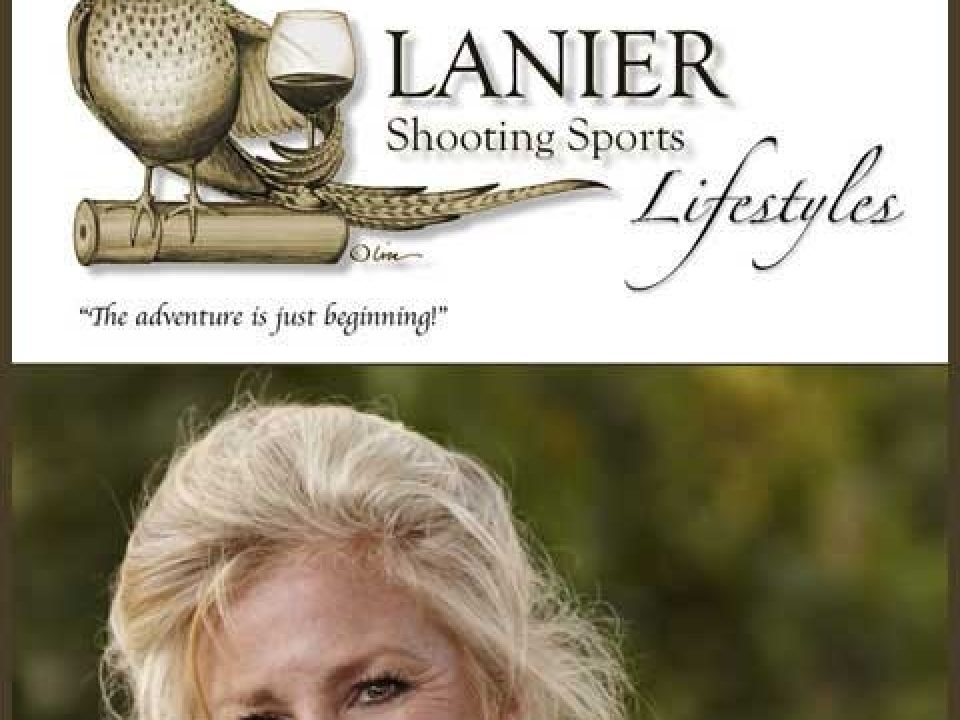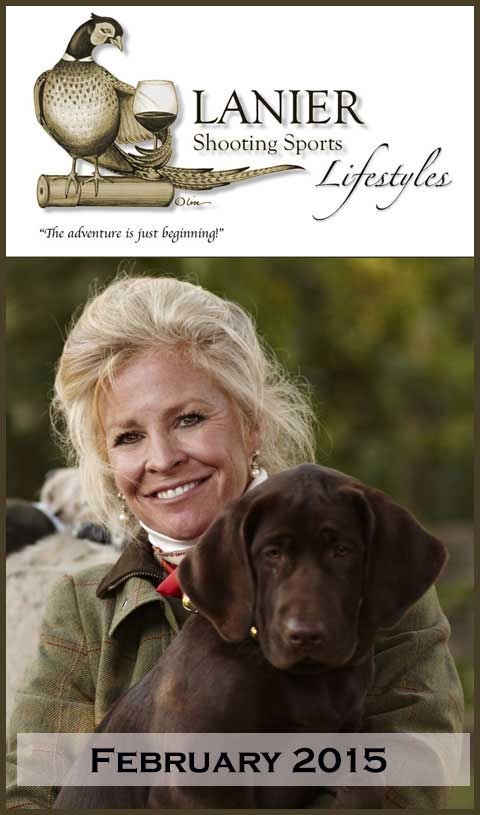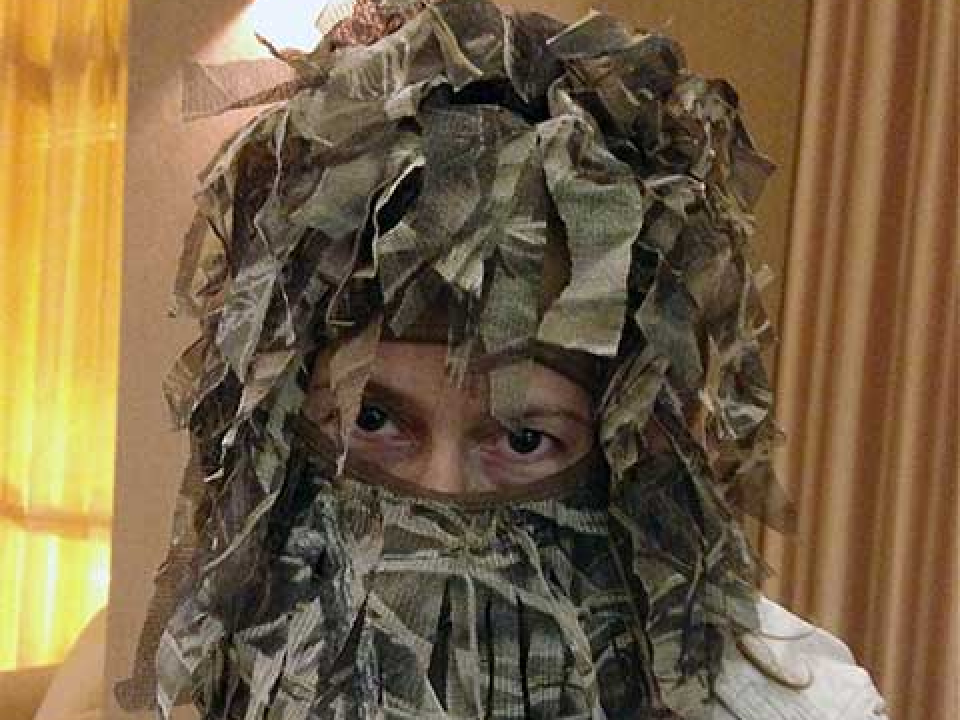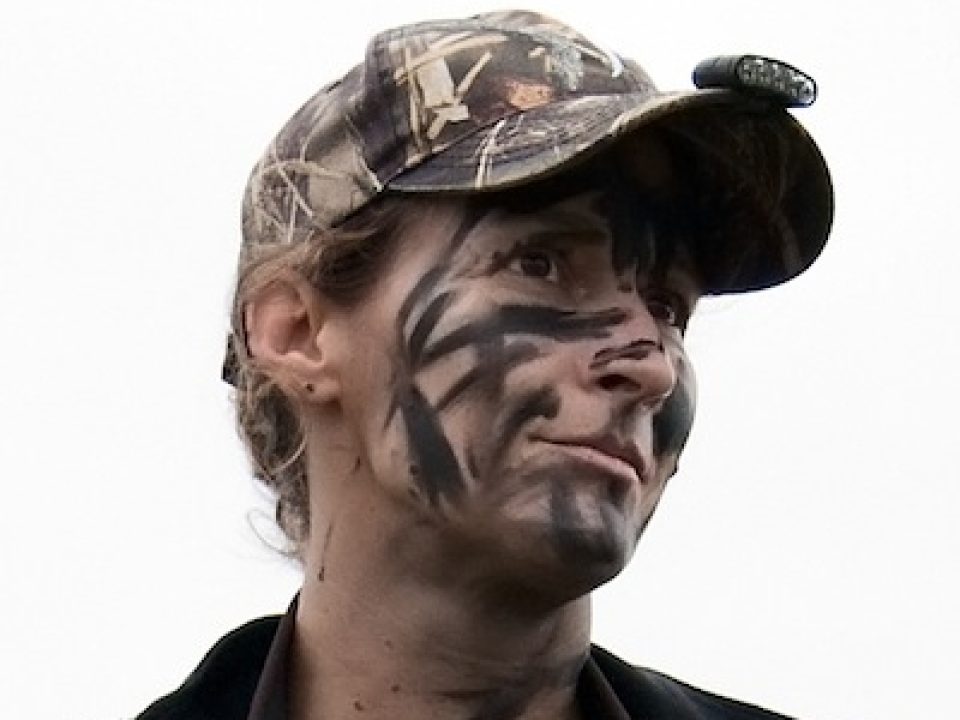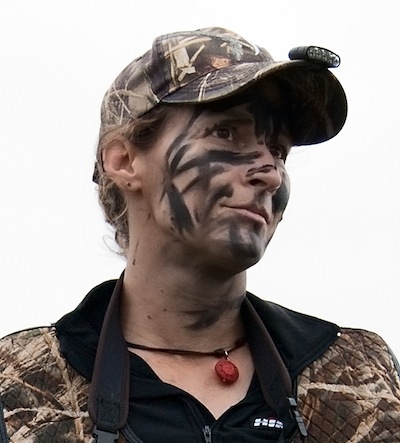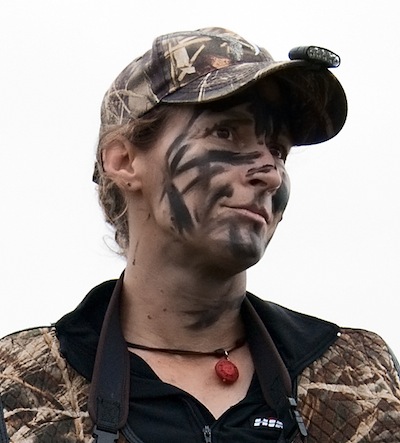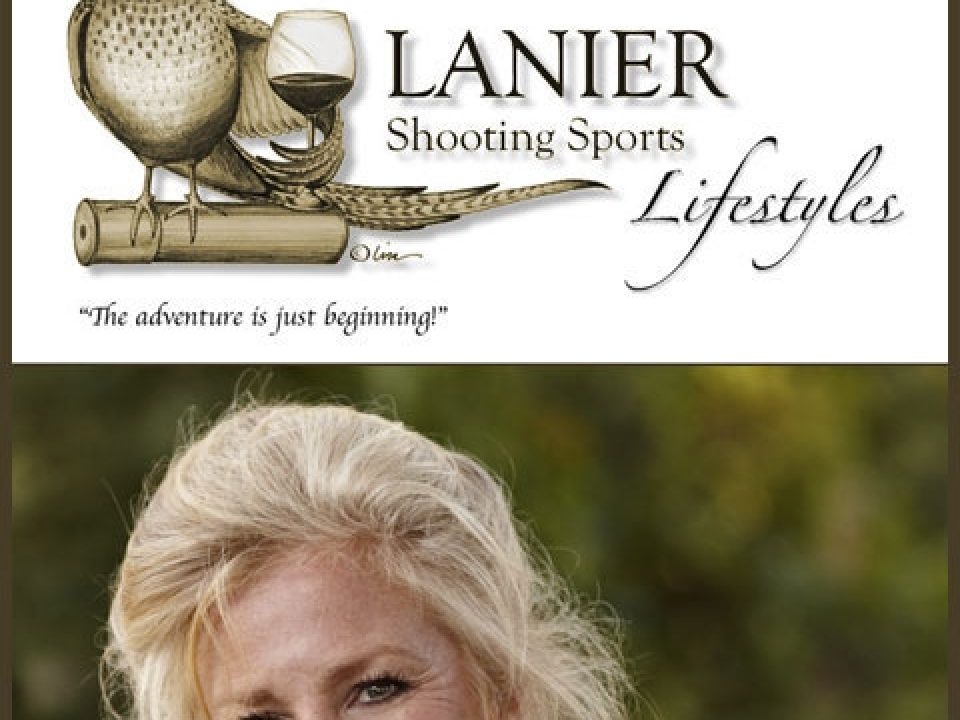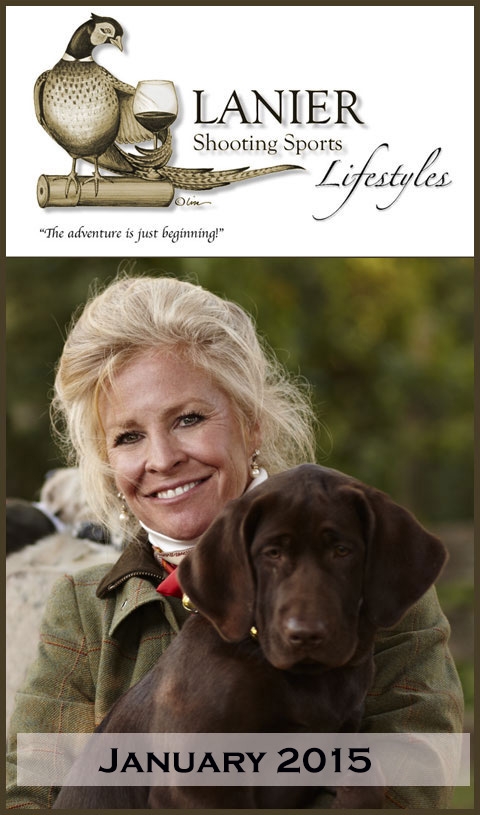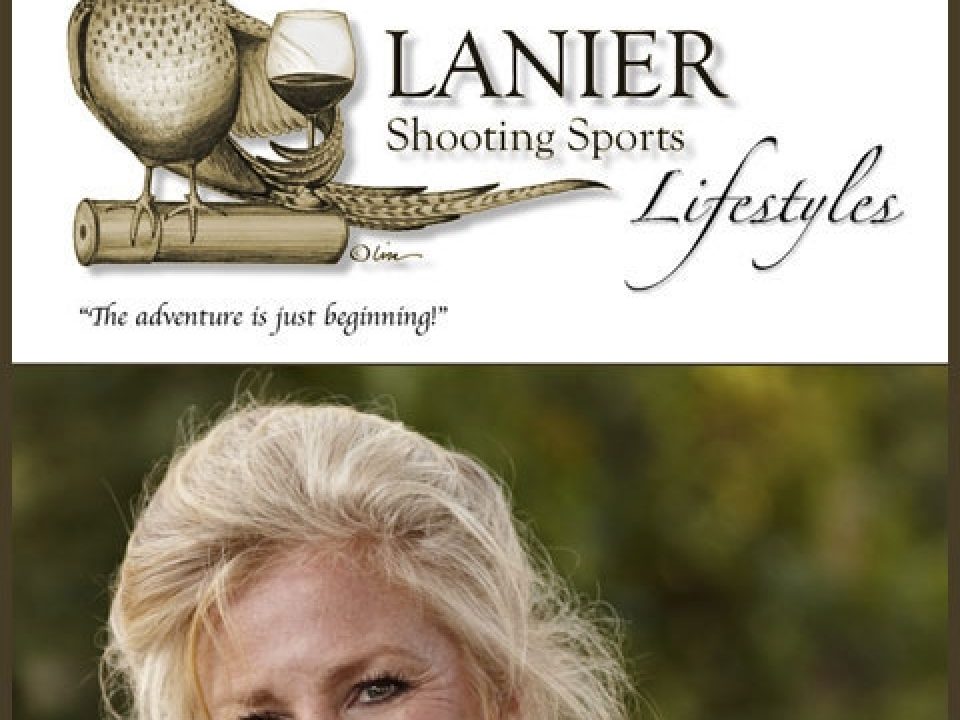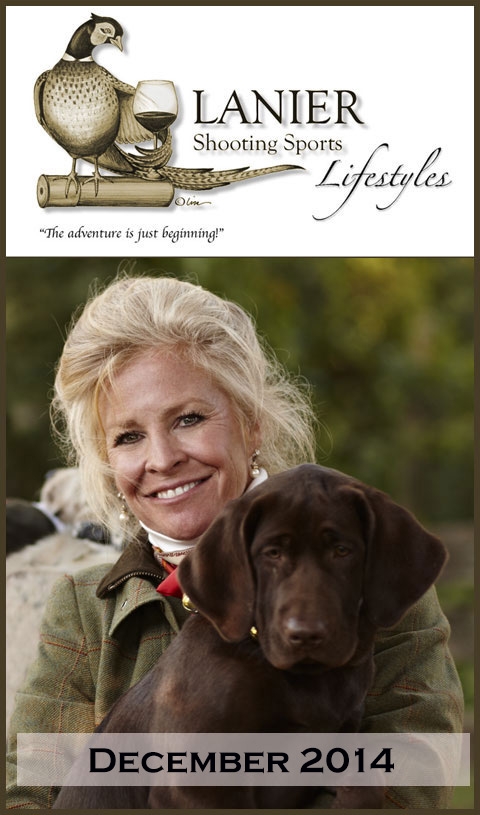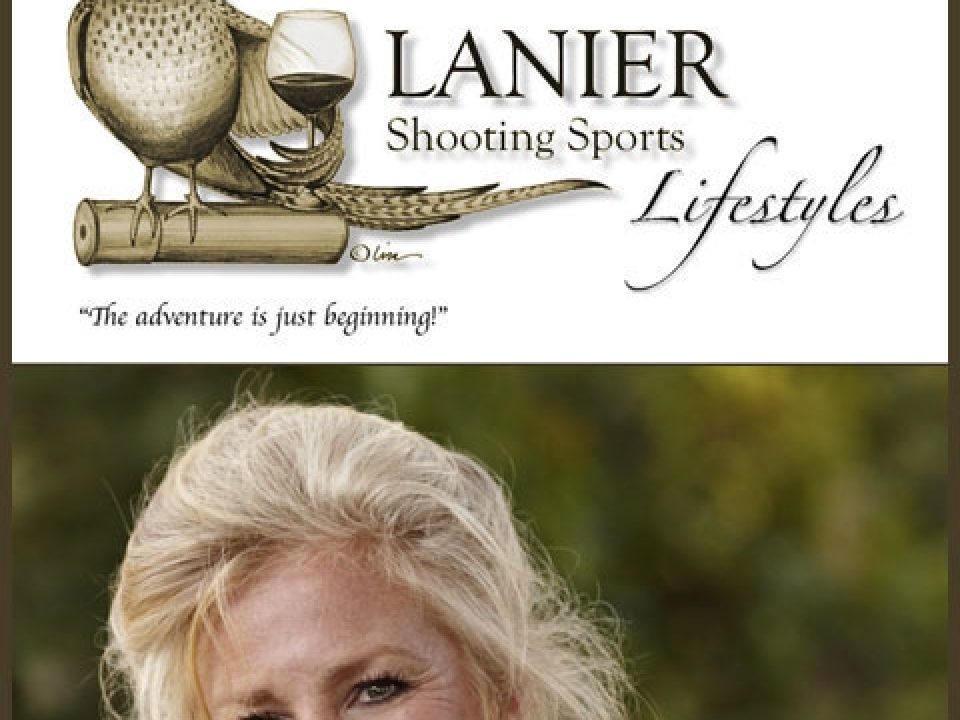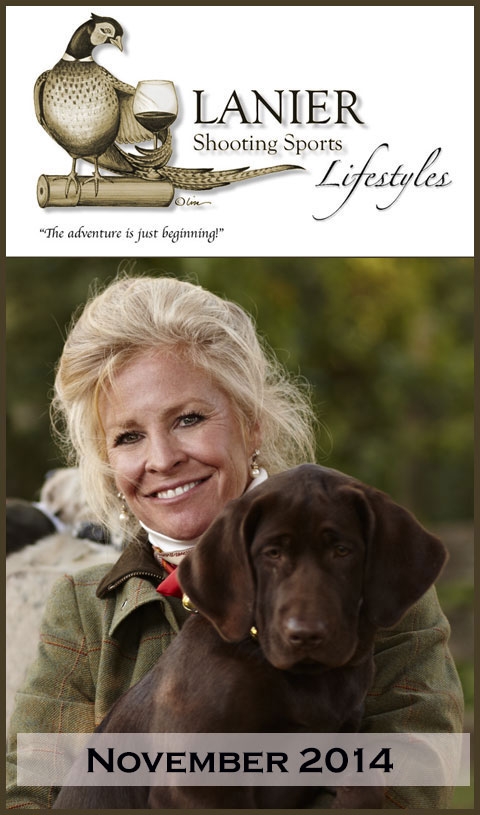
This is my ninth season of duck hunting, and while the number of women duck hunters here in the Sacramento Valley has grown a lot since I got started, I’ve realized this season that we, as a class of hunters, have some work to do.
Two epiphanies have driven this train of thought.
The first was in October, when I went on a women’s hunt at the Tule Lake National Wildlife Refuge, up on the high-desert border between California and Oregon. I hunted that day with three women and a kid, all of whom I’d just met.
Two of the women were experienced waterfowlers, but I was the only one blowing duck calls. One was comfortable only with a honker call. The other – Megan, whom I count today as a dear new friend – gave up on calling years ago in the face of her brother’s ridicule.
For some reason, this day crystallized eight years of personal observation: Most women duck hunters I’ve encountered don’t call at all, use only whistles, or call only when no one else is around. Often, those women tend to disparage their own calling skills.
Holly Heyser
Obviously, there are exceptions, but there was no denying the cumulative weight of the anecdotes: Whether we’ve been picked on or are just scared to blow a bad note (which doesn’t seem to stop some incredibly bad male callers I’ve heard), we tend to leave the calling to others.
This epiphany had some very cool ripple effects, which I’ll come back to after Epiphany No. 2:
In November, I traveled 12 hours with a female coworker to hunt mallards over flooded corn in Eastern Washington – the subject of last month’s Butt, Belly, Beak, Bang. Before I left, my boyfriend Hank had been on a hunting/cooking trip to Texas, and at some point he was telling the guys there that I was going on an out-of-state duck hunt without him the following week.
One guy’s glowing reaction: “I want one!”
I’ve heard that plenty. While some troglodytes still exist in duck hunting, most men I’ve met would love it if their wives and girlfriends were into duck hunting as much as they were. Or at all.
But that wasn’t what this guy meant. Hank explained they were all blown away that I would go on a hunt that far away without him.
I’m pretty sure I cocked my head and furrowed my eyebrows at Hank when he said this, much the way our cat Harlequin looks at us when we’re eating something yummy and she can’t figure out why we aren’t sharing.
You see, in this case, this experience did NOT square with eight years of personal observation. My circle of duck hunting friends and acquaintances here in Northern California includes a bunch of women who frequently hunt without their significant others, in several cases because their significant others don’t hunt.
I chewed on that story all the way up to Washington, and the night after our first hunt, I told my hunting partner, Regina, about it. She had the same reaction I did, so we decided to test the women-don’t-hunt-without-their-men hypothesis on our guide, Mike Franklin, the next morning.
During a rare lull in the shooting – maybe a full minute or even two without ducks working – I turned to Mike. “I’ve got a two-part question for you, Mike.”
“OK?” he said slowly, maybe just a bit taken aback by the formality.
“One, how often do women hunt with you up here, and two, how often do they come up here without their boyfriends or husbands?”
He answered quickly. “Rarely, and never.”
We were blown away. Regina and I were his first unaccompanied female hunters! And he’s not a newbie – he’s been guiding for decades.
Is my circle of intrepid gal-pal duck hunters in NorCal that unusual?
I’ve met enough women duck hunters around this country to know we are not unique. But we might still be on the rare side, and I’m uneasy with that. It’s not that I think women should hunt ducks exactly the way men do; I think I’m just really bothered by the timidity implicit in all of this. It’s 2015. We should be way beyond timid by now.
It reminds me of something my friend Dana asked me on my very first hunt with her, in my second season of duck hunting. We were clinging to hot cups of tea and coffee while we waited for shoot time, sitting in a blind along a river. This was our get-to-know-each-other hunt, and Dana had already established that I was more than a bit bonkers about duck hunting.
“OK, here’s a question,” she said. “If you lost Hank for some reason – God forbid! – would you still hunt?”
I didn’t hesitate.
“Oh yeah. And if he left me, there’d be a fight over the decoys.” It was the answer Dana was looking for.
I may be asking a similar question of other women duck hunters down the road. Would you go on a big duck hunting trip without your husband? Even if the real answer is no, I hope something stops them from saying it long enough to at least consider the possibilities.
Now, I promised to tell you about the ripple effects of Epiphany No. 1.
I left that hunt in October thinking hard about my own calling, how I’d never considered my calling good enough to invest in a quality mallard call. Yep, I’m insecure too. So I ordered a good call that several of my (male) hunting friends liked: the Zink Green Machine.
Then I bundled up a bunch of my starter calls and shipped them up to Megan, and ordered her a copy of Zink’s “Mallards Gone Wild” CD, which has lengthy recordings of mallards that you can “sing along” with. That CD was what had finally given me the courage to blow a mallard call a couple years ago in the first place.
When I told Megan the package was on its way, she gave her old call – the one she’d given up on – to the kid who’d gone with us on the women’s hunt back in October.
Around the same time, I told a board member of the non-profit I work for about the whole series of events, and how excited I was to be taking my calling more seriously. Craig has been a calling contest and call-makers contest judge, so I figured he would understand this was an important moment for me.
Apparently he did. A few days later, I received a package from him: He was giving me one of his custom JJ Lares calls, along with extra reeds that would increase the difficulty of using the call, but also the quality.
I recognized immediately it was a very generous gift, and the wide eyes of everyone else who’s seen that call on my lanyard since then confirms it.
There’s a message here: Nothing about our state as female duck hunters is permanent. Everything can change.
Sometimes all it takes is someone telling you, “Hell yes, you can do this. Now get going!”
Holly A. Heyser is the editor of California Waterfowl Magazine. A hunter, forager, writer and photographer, she lives in Sacramento, California. You can see more of her work at hollyheyser.com
